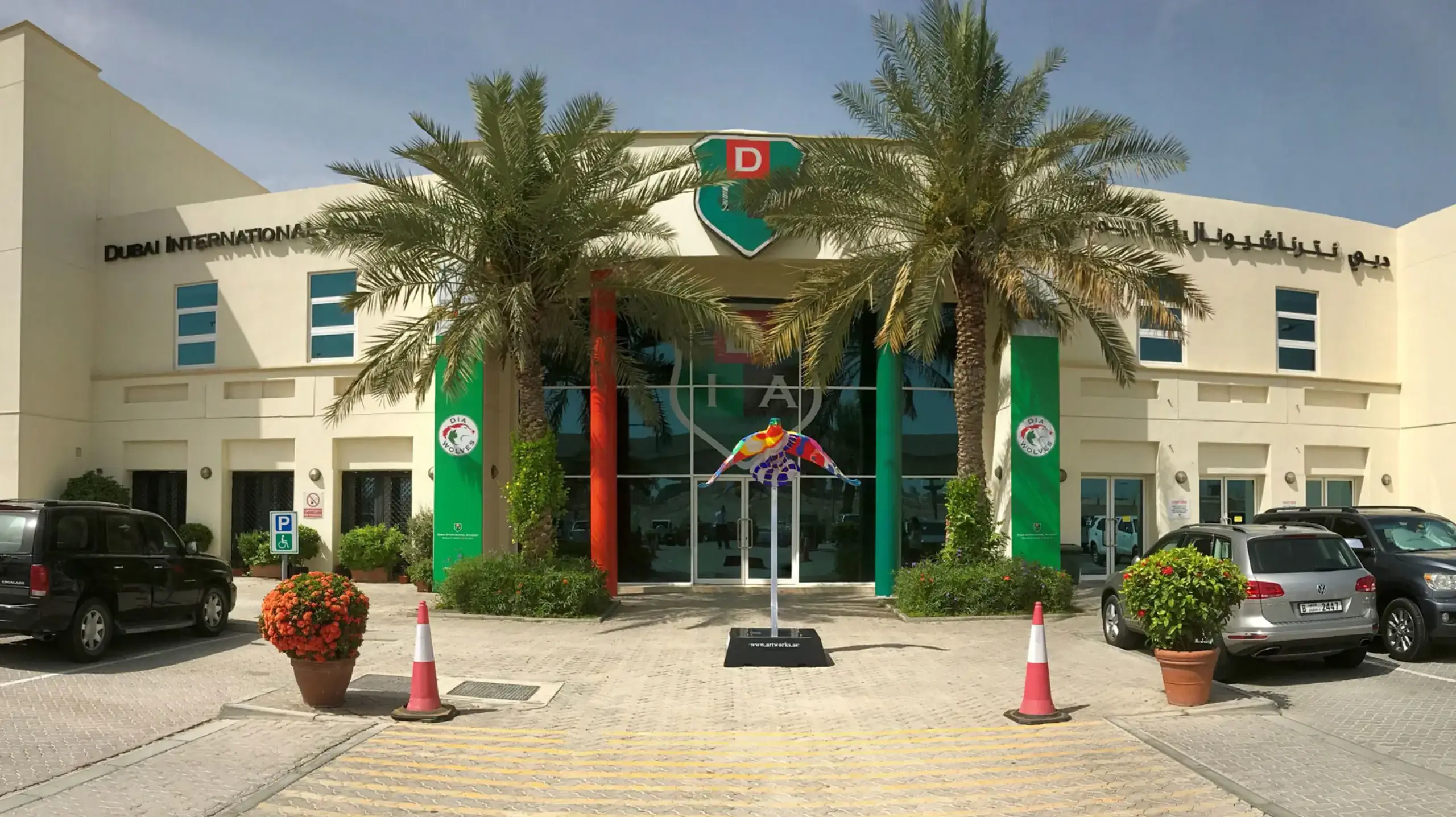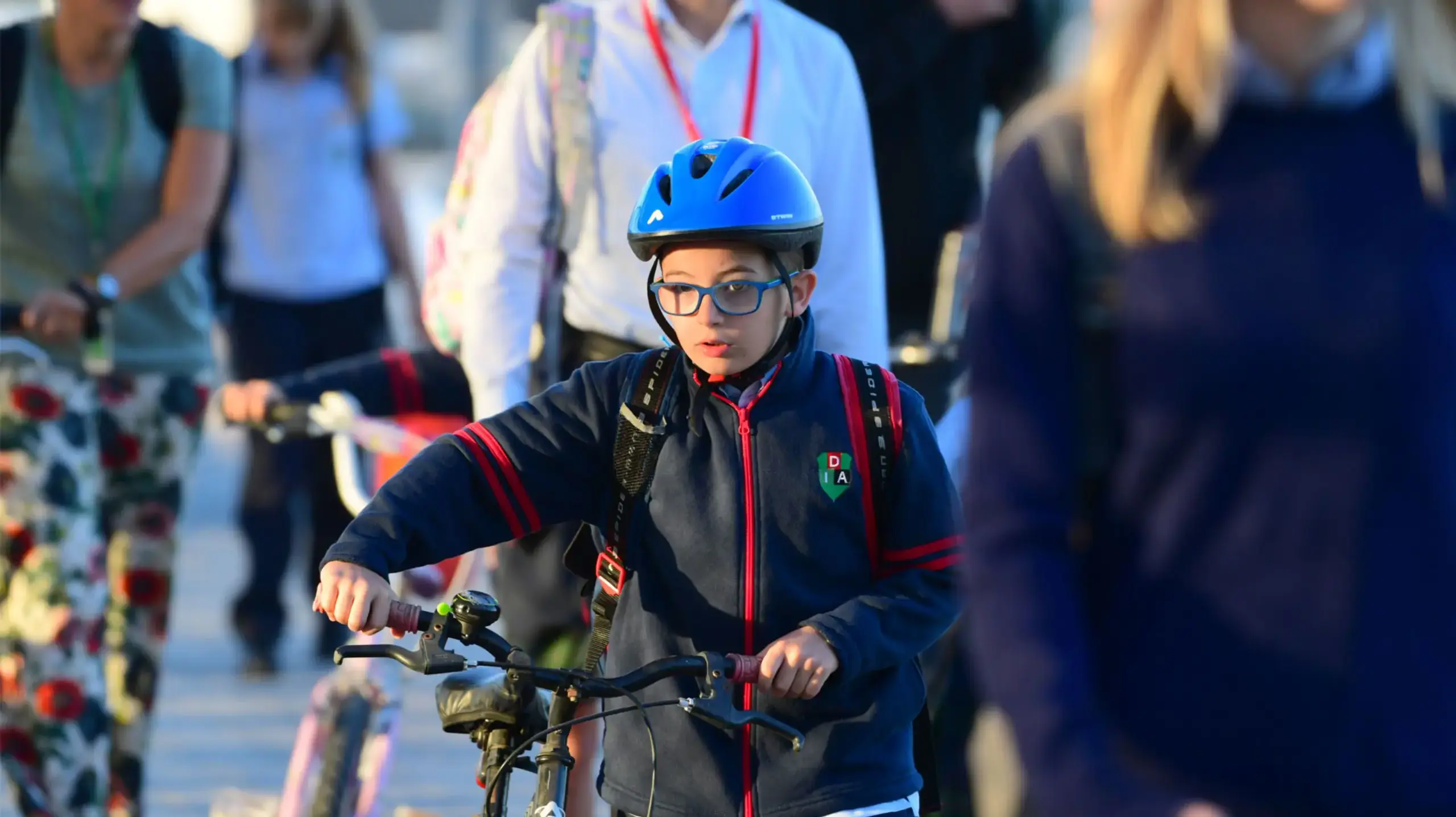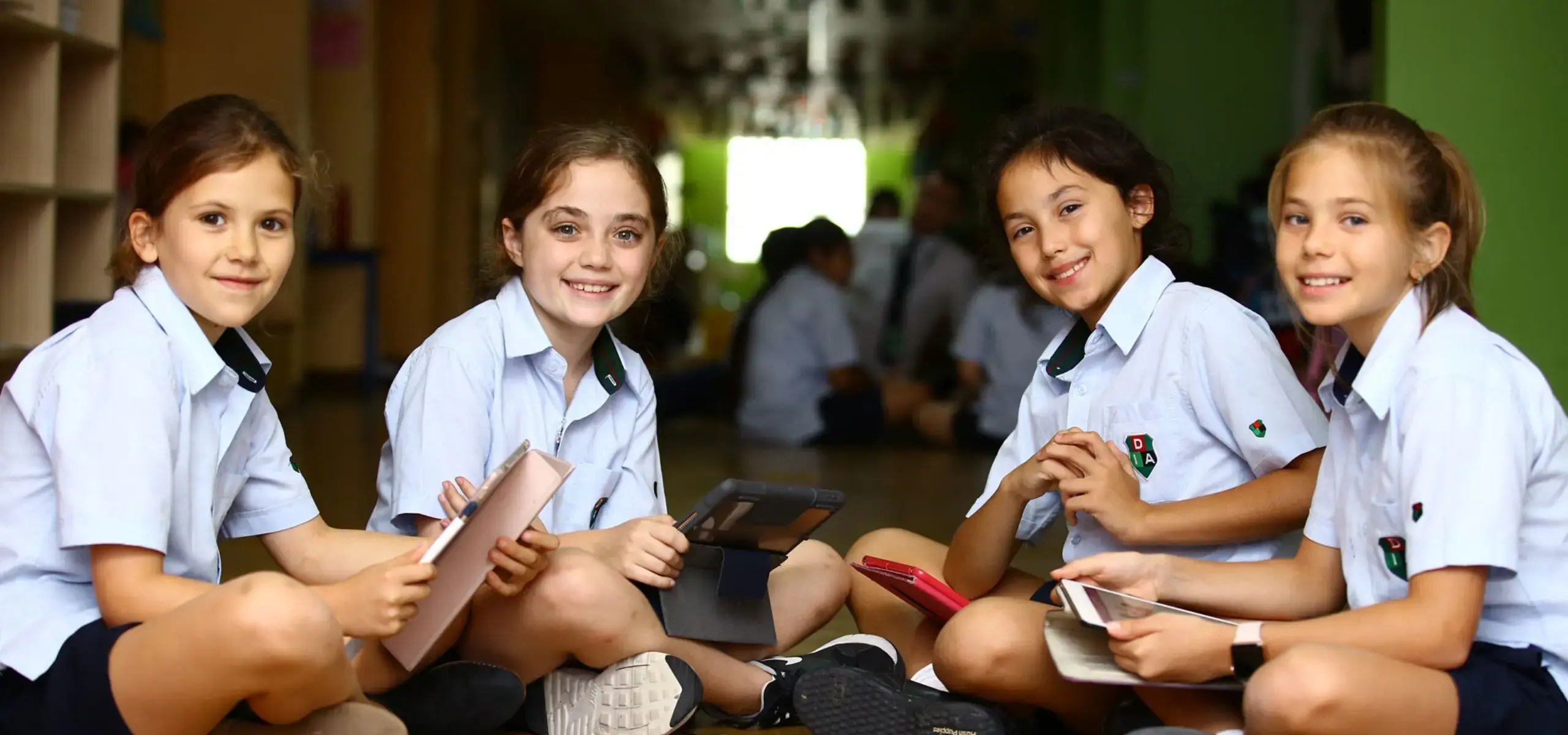Have questions about Admissions at DIA Emirates Hills?
Take a look below at our frequently asked questions here at Dubai International Academy Emirates Hills.
|
IS THE IB COMPATIBLE WITH OTHER CURRICULA? |
|---|
|
Yes. The IB is a framework for learning. The actual taught curriculum content comes from best practice worldwide and is benchmarked against Cambridge International standards. Students transferring from schools with other curricula may find that some areas of science, history, geography and English literature texts are different, however the IB and DIA’s own programmes have been specifically designed to accommodate learning needs for an inherently transient expatriate population. |
|
HOW DO SOUTHERN HEMISPHERE STUDENTS FIT INTO A NORTHERN HEMISPHERE ACADEMIC YEAR? |
|
Year level placements are determined by student age in accordance with UAE education authority regulations and previous school transfer certification. In addition, our own entry assessments will give the admissions team a good indication of which year level would best suit every applicant. Inevitably, this may mean that some students transferring from the Southern Hemisphere may find themselves repeating half a year upon arrival at DIA. This can be discussed in more detail with our admissions team. |
|
WHAT KIND OF COMMUNICATION CAN I EXPECT FROM DIA? |
|
The school website contains general information about school events and activities. The Parent Plus portal within the website is a password protected area for DIA parents only and will contain important information specific to your child(ren). In addition to this, teachers and parents share email addresses for urgent information or to arrange face to face appointments. |
|
HOW ARE PARENTS INVOLVED AT DIA? |
|
The Parents Association of DIA (PADIA) plays an active role in school life. PADIA has an office in school and a core group meets at least twice a week to plan events, arrange fundraising activities, sell pre-used school uniforms and meet with other parents. In addition, most Early Years classes have reading parents who help with the reading programme and every class in the Primary School has a class representative chosen from amongst the parents. |
|
DO PRIMARY AND SECONDARY STUDENTS MEET DURING THE SCHOOL DAY? |
|
No. Primary and Secondary classrooms are separate, class timing is slightly different and break and lunch times are not the same. Start and end of day routines and meeting points are also different. Only our supervised optional bus service is shared. |
|
HOW DOES BREAK AND LUNCH WORK AT DIA? |
|
All students have two recess times during the school day. Generally, break is 20 minutes early in the day and provides an opportunity for outdoor play, a bathroom break, a drink and a snack. All students from KG1 to Year 6 are expected to bring snack from home for first break. Lunch is 40 minutes, later in the day and is divided into recreation time and eating time. For lunch, KG 1 to Year 2 students have the option of a hot meal being delivered to their classroom or food from home in an insulated lunch box. Year 3 students upwards may bring lunch from home or elect to buy it from a range of healthy options available in the cafeteria. |
|
HOW CAN I PREPARE MY CHILD FOR THE START OF SCHOOL AT DIA? |
|
Starting a new school can be a daunting experience for a child. The best preparation is to reduce the anxiety that is associated with this big move. Visiting the school beforehand, turning the apprehension into curiosity and sharing your excitement at the new opportunities that will come along is the best possible preparation for any child starting a new school. In addition, no-one likes to stand out on their first day, so making sure your child has the right school uniform, you know which days to have PE kit ready and school supplies are all bought well in advance can give children a sense of reassurance. |
|
HOW QUICKLY WILL MY CHILD SETTLE IN AT DIA? |
|
Every child is different however the IB Learner Profile encourages students to be caring, open minded and risk-taking, amongst other attributes. Primary School ‘Friendship Ambassadors’, buddy benches, a house system encouraging student involvement in activities and a supportive, welcoming school environment mean that most children settle in to DIA very quickly. For the very rare occasions students have difficulty adjusting, student counsellors and Primary and Secondary Deans of Students are available throughout the day to provide guidance, reassurance and support strategies. |





